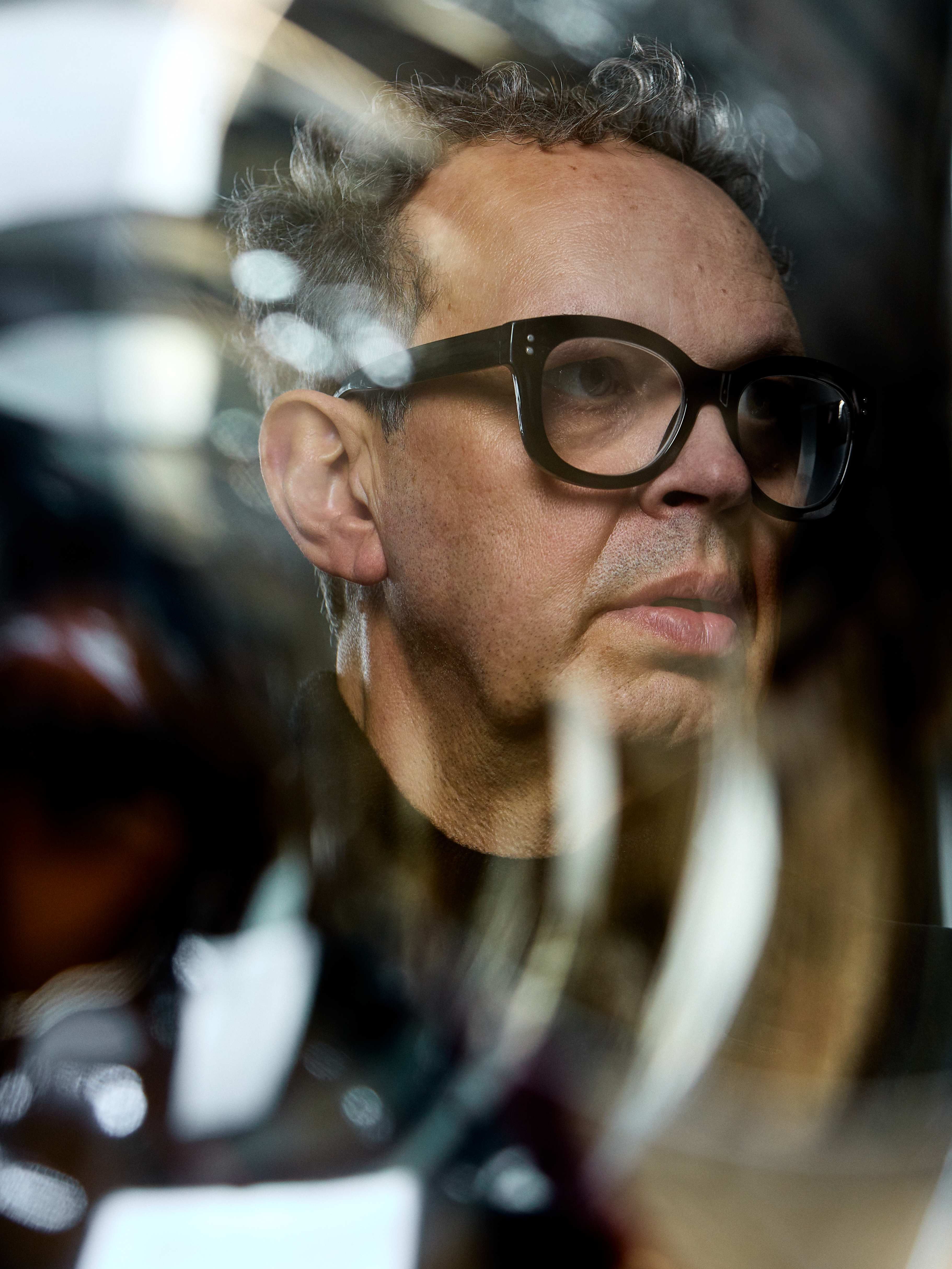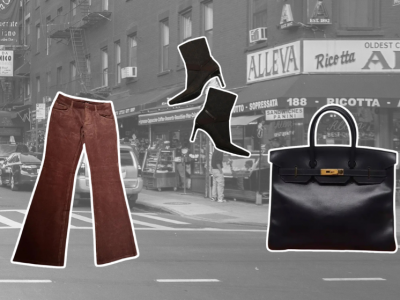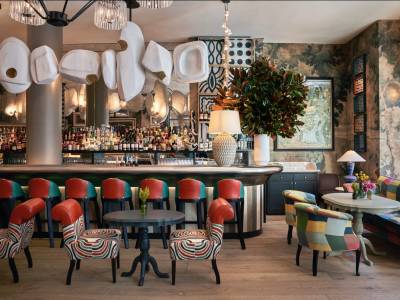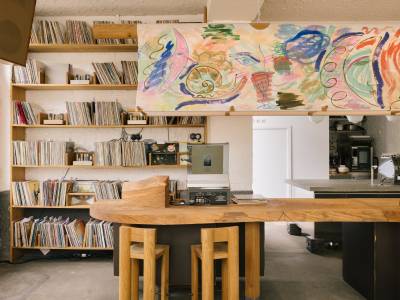Sustainability is a hot topic now, and greenwashing is pervasive. Dixon is smart enough not to play that game (his bestselling Melt chandelier has plastic shades). Instead, he says, he does what he can. “At the studio, we know where everything is made, we visit factories and see the conditions for workers and systems. We are rigorous over the chain of custody.” This spring, he is piloting the Mirror Ball chandelier in 100% recycled polycarbonate, which is “more expensive and looks shitter.” Will people pay more for something with the right characteristics? We will have to wait and see.
There’s almost no material he hasn’t experimented with, and, having explored the surface of the earth, he’s going underwater, to grow a kind of “naturally occurring concrete, lime scale, calcium substance that is a bit like the fur in the kettle.” It grows on shipwrecks in warm waters and running an electrical charge through the metal accelerates this growth. South Africa and Indonesia are using a similar technique to regenerate their coral reefs. In 2010, Dixon piloted Biorock production in the Bahamas, and he is now planning an underwater factory in Bali. It won’t be solid enough to make fully functioning chairs, but it’s not hard to envisage limited-edition pieces that will seduce the art world.
The spell in the greenhouse has nurtured an unexpected love of the countryside, something the self-confessed city boy, who still lives during the week in Fulham, never thought would happen. Claudia Nella, his wife, and Florence Dixon, one of his daughters, run the sustainability-oriented boutique Tidy Street General Store in Brighton and dad goes to Sussex every weekend. It’s a volte face for the rock ‘n’ roll designer who’s into motorbikes (currently three) and playing the bass (next gig, Copenhagen). “I didn’t know how to be in the countryside,” he confesses, “but I’m now keen on a town and country existence. It’s good to see villages and coastal places coming alive again. Zoom calls, working rom home, hobbies like dogs and baking, and cheaper rents, along with concerns about food security and provenance, point towards a more local approach.”











